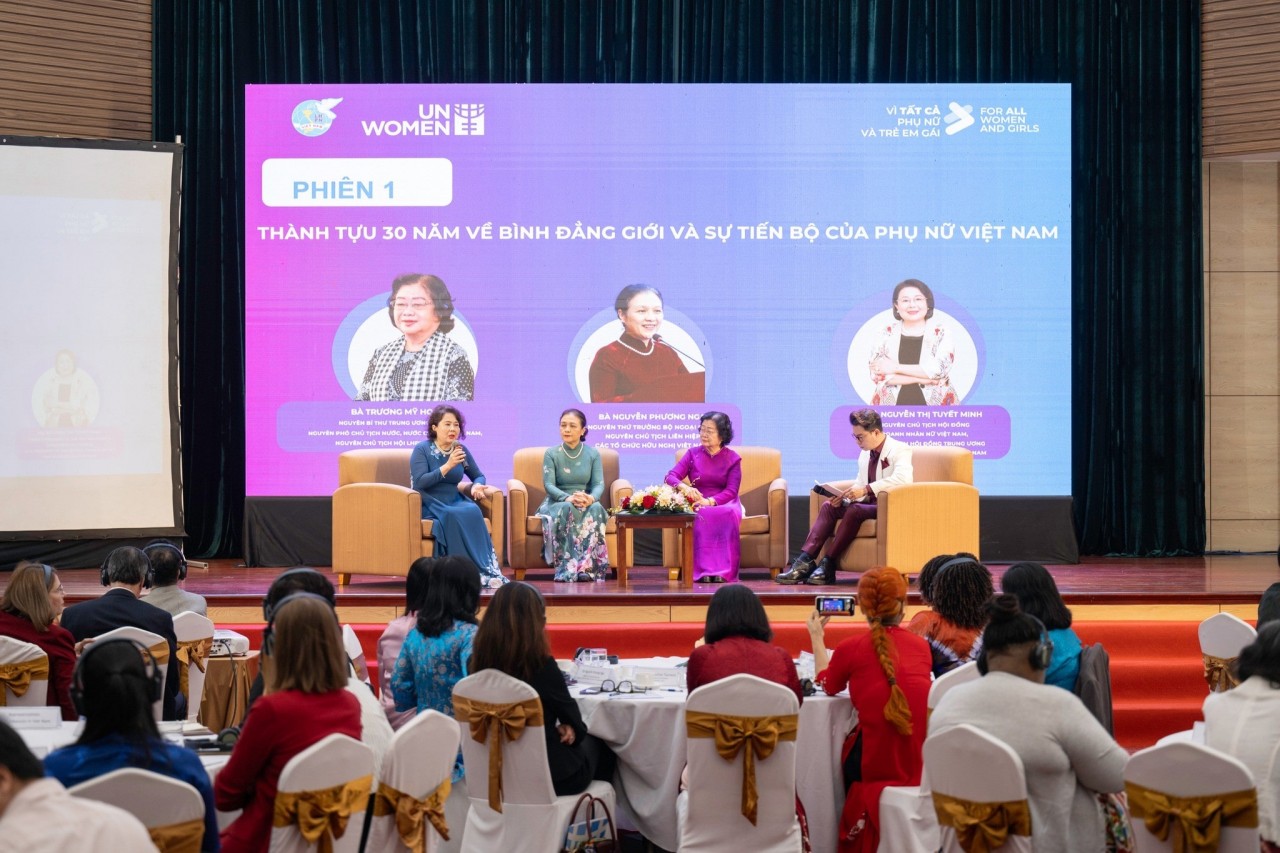Removing Barriers for Female Development
A recent research by development organization CARE has revealed how ingrained gender norms are, who is enforcing them and how they are preventing women entrepreneurs from reaching their goals. Revealingly, it is not just men who are piling expectations on women – it is also women themselves and their female family members.
Even more alarmingly - the study found that when women entrepreneurs start to succeed, they can face sabotage by their male family members and even face violence or sexual harassment.
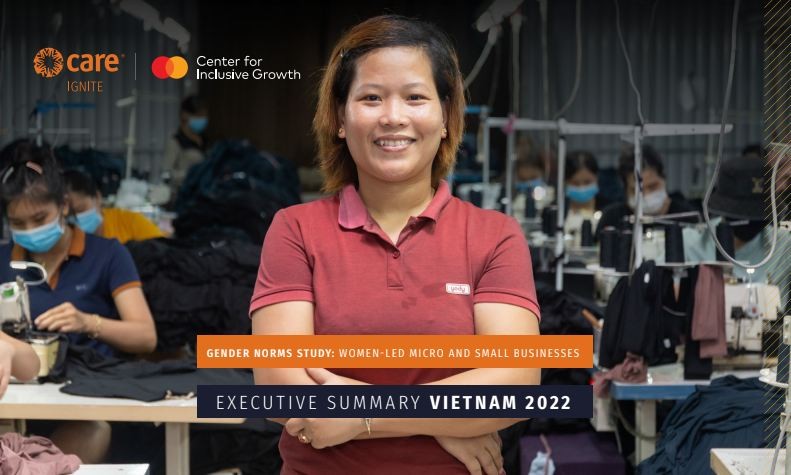 |
| This study was conducted as part of CARE’s Ignite program which is supported by the Mastercard Center for Inclusive Growth. The program, which runs in Vietnam, Pakistan and Peru, supports micro and small business owners, particularly women, to grow their businesses through opening up much-needed access to financial and digital resources, as well as shifting gender norms. |
Norm 1: Businesswomen should be the main childcare giver
Gender norms are everywhere. The expectation that a woman should be the main childcare giver is a norm that is so ingrained it constantly remains unchallenged. Across the globe, a woman’s ability to multi-task is put on a pedestal and glorified by both men and women. A woman’s ability to run her own business, care for her children, run her household and do everything else in between is seen as a badge of honor.
This new research, conducted in Pakistan, Peru and Vietnam reveals that expectations about women being the main childcare giver and men being the main breadwinner are as strong as ever. CARE, through its Ignite program, which supports women entrepreneurs to grow their businesses through increased access to financial and digital resources, is taking action to shift some of these norms holding women back.
| Social Norms are the rules that govern behavior. Gender norms are social norms defining acceptable and appropriate actions for women and men in a given group or society. They are embedded in formal and informal institutions, nested in the mind, and produced and reproduced through social interaction. They play a role in shaping women and men’s (often unequal) access to resources and freedoms, thus affecting their voice, power and sense of self. |
In Vietnam, 80% of men and 60% of women agreed that businesswomen should be the main childcare giver, despite the pressure of running a business. Meanwhile, 76.7% of those aged over 51 agree with this norm, however, only 36.7% of 26-50 year-olds agree, showing a more progressive response by the younger cohort.
“When I started the business my husband told me I had to do both the business and the childcare. I’ve come to the point that I don’t expect any support from him anymore. Women in Vietnam are often framed as only being able to take care of the home, I want my boys to see that women are capable of doing many things beyond that,” shared Le Hong Van, from Vietnam, a food business owner.
In Vietnam, mothers-in-law were revealed as the staunch enforcers of the norm related to childcare, the ones who would most disapprove if the man does more childcare than the woman.
“I live with my parents in law. At first I did almost all things in the house including childcare, cooking, daily chores…besides working. Then I realized I don’t need to do everything, my husband must share. At the beginning, I had to teach him a lot and he was shy and reluctant about doing these tasks in front of his parents. Initially, they didn’t approve of him doing these jobs but eventually they saw all the things I was doing. My husband is a expert in cooking and doing housework now,” Nguyen Thi Thu Hien, business partner of Le Hong Van, said.
Norm 2: Men should be the breadwinners of their families, rather than businesswomen
When respondents were given the statement: “In most families you know, men are primary income earners compared to businesswomen” – 100% of respondents aged 18- 25 disagreed with the statement. As the age of respondents increased, so did agreement with this statement, rising to 56.7% amongst those over 51 years.
This data shows us that both men and women in Vietnam are not expecting men to be the primary breadwinners; and that families with equal breadwinning roles or women being primary earners are being positively welcomed and men are not being criticized for that.
In response to the statement: “If you (as a businesswoman) make more income than your partner, other people you know will disapprove of you.” Only 28% agreed, showing that women are generally accepted if they earn more than their husbands.
In response to the statement: “If you (as a businesswoman) make more income than your partner, other people you know will disapprove of you.” Only 28% agreed, showing that women are generally accepted if they earn more than their husbands.
When asked who would disapprove most if you earn more than your partner, women first listed themselves, followed by their own mothers and their partner’s mother. Changing women’s individual agency remains critical. They are willing to earn more money than their partners yet feel conflicted and disapproving of themselves when they do.
| Respondents are more ‘progressive’ in Norm 2 compared to Norm 1. The percentage of respondents that agree with Norm 2 is much smaller than Norm 1 - 29% compared to 59%. |
“In Vietnam, it is not so common or popular for men to stay at home and take care of his family. Women are often considered the main care giver and cannot concentrate on their business. They cannot invest 100% of their time to their work as they have to take care of their family, leading to the judgment that their work quality is not as good as men’s,” said Quach Van Phong, husband of a female entrepreneur.
Through a combination of far-reaching social media campaigns and in-person workshops, CARE is beginning to see small changes. Media campaigns in all three countries, with male and female role models, have showcased shared responsibility in the home and normalized the growth and success of women entrepreneurs, with the campaigns generating a widespread appreciation for female entrepreneurs.
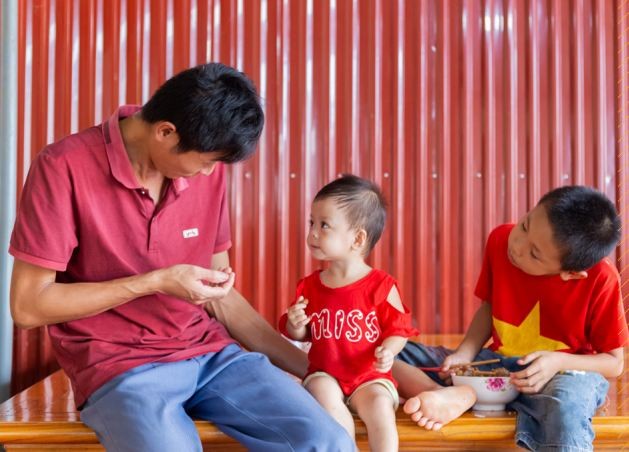 |
| A man takes care of his children while his wife working. Source: CARE |
Meanwhile, Nguyen Thi Thu, who runs an organic farming network, as well as her own food business, attended a ‘Family Day’ organized by CARE, which promoted shared responsibility and more engagement in women’s success by husbands and children.
She said: “I have struggled a lot with my husband’s lack of support. Now we are trying to find a new balance. Since we attended the Family Day together, I have seen a major change in him. On that day, for the first time, he acknowledged my work and my contribution to society and the community. Since then he is really helping out with the children and the household chores. He is cooking and cleaning, he’s very wonderful! Now I can travel much more for work.”
In Peru, CARE will be using this gender norms data to develop a new element of the Ignite program focused on shared responsibility in the home targeting women entrepreneurs, their partners and family members. New training will also be offered to CARE’s local financial partners on gender and shared responsibility. CARE will also provide early support and signposting for women entrepreneurs who report gender-based violence.
In Vietnam and Pakistan, the data will continue to be used to influence outreach activities and campaigns which promote and normalize shared responsibility and women’s financial and digital independence.
By studying the barriers that are holding women entrepreneurs back, and then working closely with local partners to break down those barriers, CARE is building new opportunities for women entrepreneurs wanting to grow their businesses.
Despite the Ignite program launching in the midst of the pandemic, the program has unlocked USD 115 million in loan capital for women entrepreneurs, a twenty-two-fold uplift of the original program funding provided by the Mastercard Center for Inclusive Growth. 83% of Ignite participants tell us that the program has contributed to an increase in their business sales, helping to build their financial resilience.
Work on financial inclusion to date has been focused on products and services, without fully understanding and addressing what is preventing women from accessing or using them. Very few organizations working in this field are addressing the gender norms that hold women entrepreneurs back, as it requires longer-term commitment. Time poverty, for example, is a major issue interconnected with childcare and household duties.
CARE’s experience shows that engagement at the household level, can result in a huge increase in shared household responsibilities and decision-making. This in turn gives women increased opportunities and time to focus on growing their own businesses and contributing to their local economies.
Rathi Mani-Kandt, Director of Women’s Entrepreneurship & Financial Inclusion at CARE USA, said: “Glorifying multi-tasking by women entrepreneurs has to stop. By working together with women and their support networks we want everyone to recognize the importance of shared responsibility at home, and to value the enormous contribution women entrepreneurs are making to their families, communities and economies.”
CARE is calling on other organizations working in financial inclusion to design holistic programing for women entrepreneurs that includes addressing restrictive gender norms; promote the benefits of shared responsibility in the household and the economic contributions of women entrepreneurs.
At the same time, collecting data related to perceptions and expectations around gendered roles and how these present barrier for the growth of women-led enterprises; and advocating for policies that respond to the specific challenges that women entrepreneurs face.
 | Jenny Ta - Self-Made Female Millionaire of Vietnamese Origin, Famous in USA Only 27 years old Jenny Q.Ta (also known as Jenny Ta) has become a self-made female millionaire with a huge fortune, dubbed the "Cinderella of ... |
 | Vietnamese Female Racer Participates in French Motorsport Tournament for the First Time Nguyen Gia Bao is the first Vietnamese female racer to officially participate in the FIA Motorsport Games in the category of Auto Slalom. |
 | First Vietnamese Female Player Scores at European Football League The Vietnamese striker did not disappoint when she scored two goals and assisted with another one, bringing a dramatic 3-3 draw for Portuguese side Lank ... |
Recommended
 Focus
Focus
Vietnam Leaves Imprints on the World Peacekeeping Map
 Viet's Home
Viet's Home
“Global Vietnamese Singing 2025” - Connecting Hearts Longing for Homeland
 Viet's Home
Viet's Home
Vietnam’s People's Public Security Force Actively Contributes to UN Peacekeeping Operations
 Viet's Home
Viet's Home
HAUFO Enhances Competence of People-to-People Diplomacy Personnel
Popular article
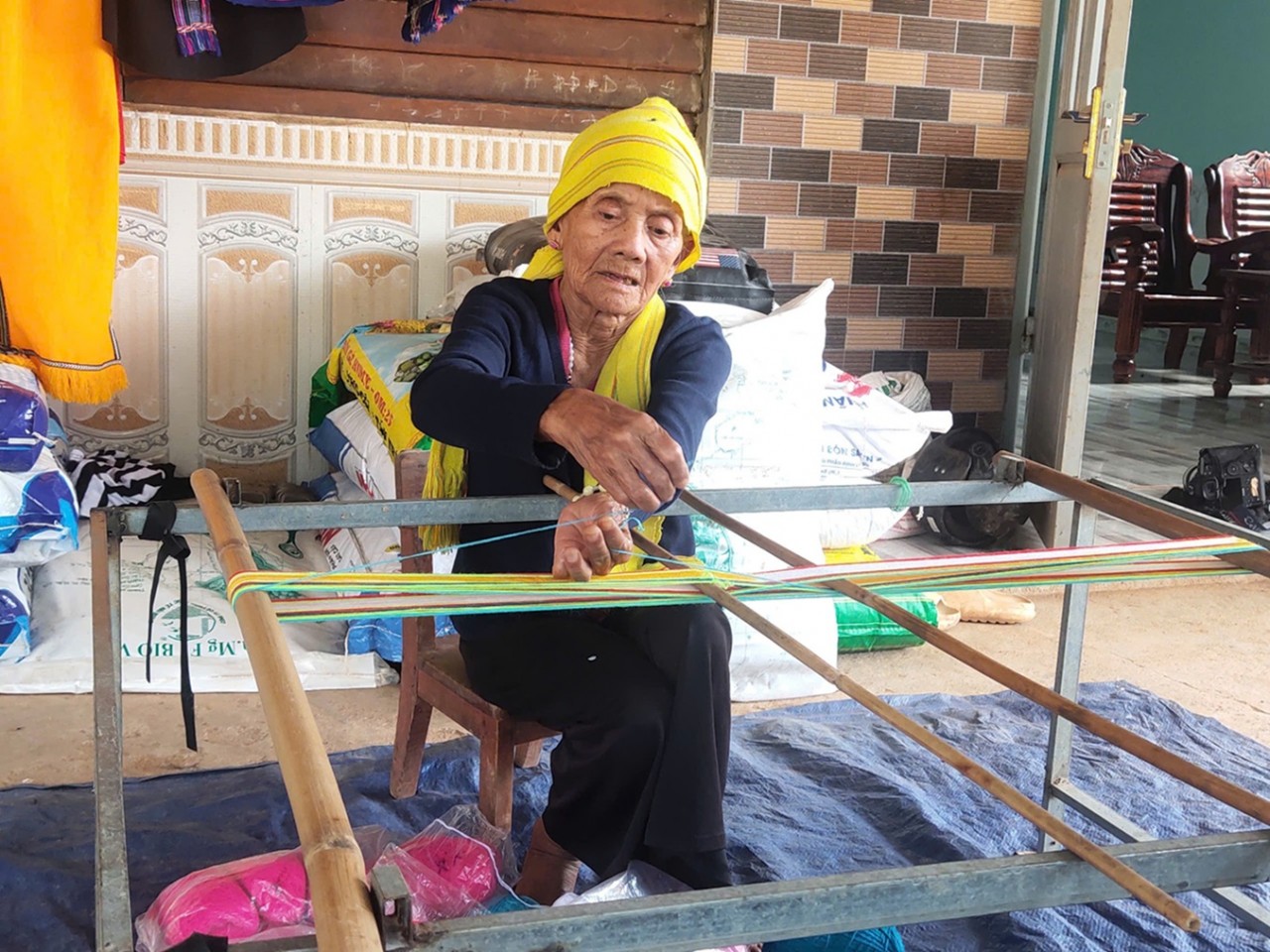 Viet's Home
Viet's Home
Hands that Reserve Da Long Brocade Craft
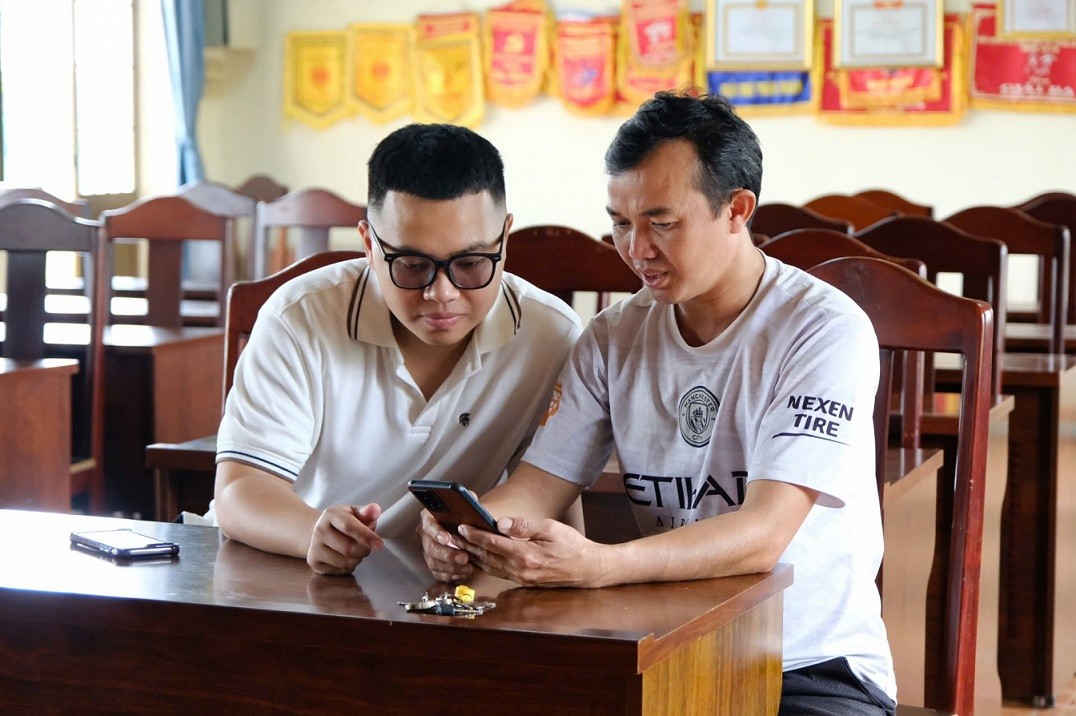 Viet's Home
Viet's Home
Da Rsal – How Digital Transformation Reshape a Poor Commune
 Viet's Home
Viet's Home
Vietnam Classified as “Low Risk” Under the EU Anti-Deforestation Regulation
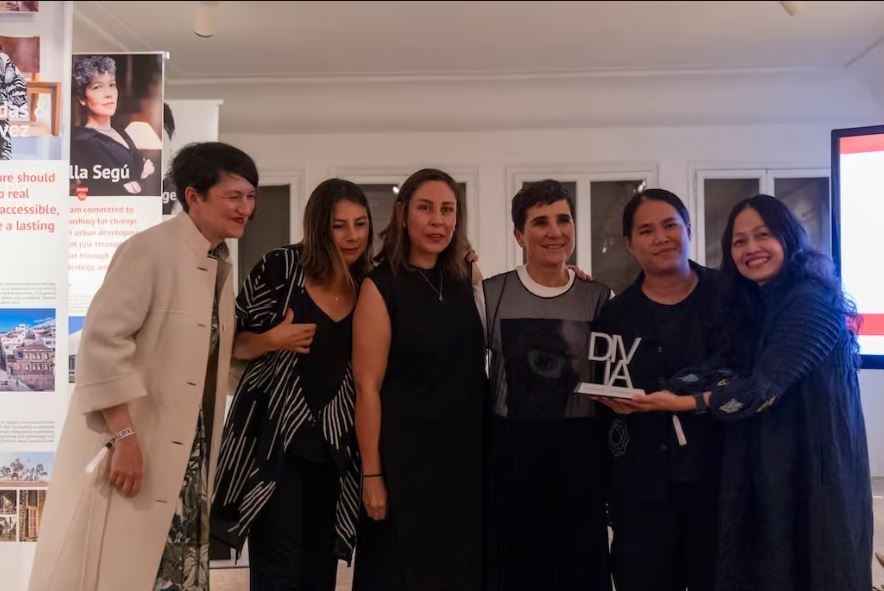 Viet's Home
Viet's Home




